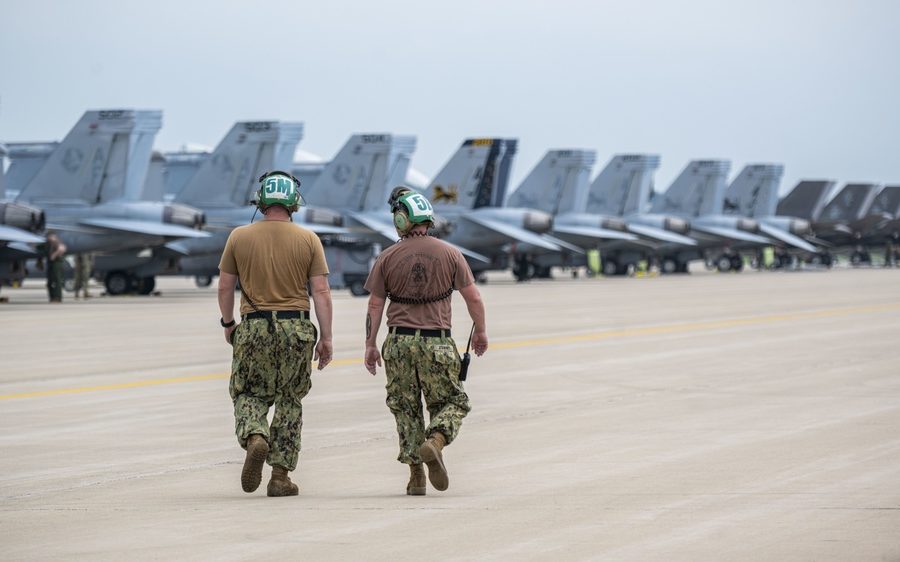The Air Force’s technology innovation hub has asked technology companies, industry partners, academia, and others to “revolutionize” flight line operations. The effort—a “sequel” to AFWERX’s 2020 base of the future initiative—is aimed at addressing three specific challenges: airfield maintenance and repair; aircraft maintenance operations; and flight line security.
Projects on all three topics were presented in late August at the AFWERX Innovation Hub in Las Vegas, Nev., according to a Sept. 7 release.
A common theme, officials said, was autonomous technology. Project teams pitched using artificial intelligence and automated tech to collect airfield surface data and determine damage, streamlining maintenance and repair.
In particular, “smart pavement” was pitched as a potential innovation for the Air Force to use in its base of the future. Smart pavement has often been pitched as a future technology for highways and roads, with sensors embedded into the pavement providing data on traffic and working with smart cars.
For airfields, however, smart pavement can be used in other ways. Hill Air Force Base, Utah, already has a “smart runway,” thanks to a project from the U.S. Army Corps of Engineers, which installed sensors on and in the base’s runway to detect pressure, temperature, moisture, and movement, along with other data, according to Airport Improvement.
All that data, experts say, can help inform decisions about operations and maintenance, as engineers can monitor the runway’s conditions more closely.
Smart pavement could also help address flight line security, according to some pitches presented to AFWERX. Sensors embedded into lights on the runway or the surface of the runway itself could use facial recognition or scannable badges to determine the identity of individuals on the flight line.
Projects presented to AFWERX also touted the use of artificial intelligence and automated processes to improve aircraft maintenance.
“The technology shown during the AFWERX Challenge will completely transform aircraft maintenance operations,” Lt. Col. Yogi Lebby, Advanced Concepts chief, said in a statement. “These new modernizing solutions will allow maintainers to be more proactive, document more effectively, and drive efficiencies back into a maintainer’s day. The future is now and I’m excited to be part of the journey.”
The Air Force has been interested in the idea of using AI to improve maintenance for years now. In 2020, the service tripled the number of aircraft using predictive maintenance algorithms, with the hope of using vast amounts of data and machine learning to anticipate issues, which would allow maintainers to more quickly identify problems and start work on solutions.
While AFWERX said it evaluated “hundreds” of participants in its Flightline of the Future challenge, the program doesn’t have the ability to award any contracts itself. Instead, it engages with individuals, startups, small businesses, large enterprises, academia, and research labs, then connects them with other Air Force agencies that can award deals. Some projects pitched to AFWERX can be selected for Small Business Innovation Research (SBIR) awards.

